Keeping the faith in tough times
People
Managing to keep the faith during a traumatic event that changed the course of his family was no easy task but the experience resulted in many ‘gifts’, Jesuit priest Father Richard Leonard told a gathering in Adelaide this month.
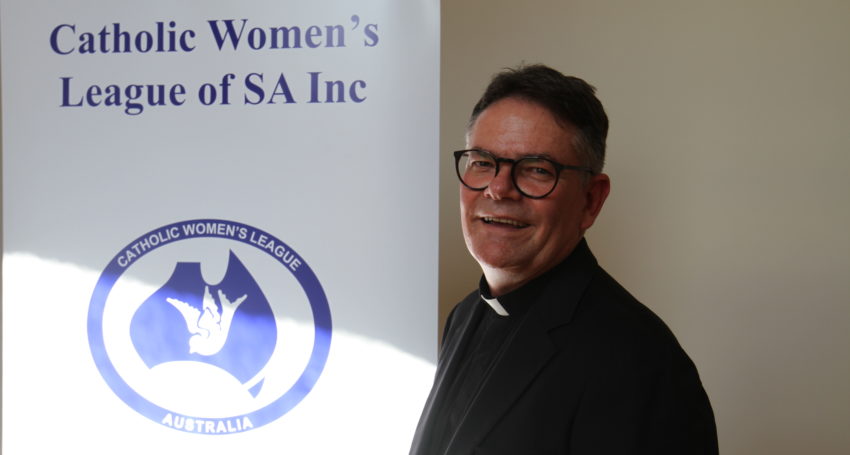
In an entertaining and heartfelt presentation, the parish priest from North Sydney, said gratitude, forgiveness and love were the things that got him through the tragedy of his sister becoming a quadriplegic after a vehicle accident in 1988.
Addressing the Catholic Women’s League’s State conference held at the Otherway Centre on September 1, Fr Leonard spoke with love and admiration of his sister Tracey, a registered nurse, who spent three years working with Mother Teresa in Calcutta before heading to the Northern Territory to work alongside the OLSH Sisters in the remote and at-risk Aboriginal community at Wadeye (formerly Port Keats).
Advertisement
There she ran the health centre for three and a half years before one evening deciding to drive an Aboriginal mum and her children back to their traditional area. Unfortunately, Tracey’s 4WD broke down and while it was being towed by another vehicle there was an accident which left her a quadriplegic.
Tracey spent the next 28 years in a wheelchair, succumbing to a “massive infection” and dying on the feast of St Patrick, March 17 2017, at the age of 56.
Her accident and the events that followed inspired Fr Leonard to write his book Where The Hell Is God? which explores how believers can make sense of their Christian faith when experiencing tragedy and suffering. It also reinforces the messages that God does not directly send pain, suffering and disease, does not punish us or send accidents to “teach us things”, though we can learn from them.
Fr Leonard said the title of the book did not come from a place of anger, but rather was the statement made by his daily Mass-going mother when the family arrived in Darwin following the accident.
“When she found out her 28-year-old daughter was a quadriplegic she turned to me with tears in her eyes and said, ‘Where the hell is God?’” Fr Leonard said, admitting the tragedy also had him questioning his faith.
“It led me, as a Jesuit, to think about how do we hold onto faith when the going gets tough?
“(In some ways) I was the luckiest person in the world really, because as a Jesuit student at the time I had theologians, biblical scholars, philosophers, a spiritual director, a confessor, I did retreats, I was sent off to counselling because of this traumatic event for me and my whole family.
“I knew I had work to do if I was ever going to get into a pulpit and say something about God’s love in terrible times when I felt God’s absence more than his presence. I was blest that I had all these people to help me through and to sort things out.”
Fr Leonard said his family learnt a lot of lessons as a result of his sister’s accident, the first being the “resilience of the human spirit”.
Encouraged by her mother, who saw the writing talent of her daughter in the many aerograms she had sent from India, Tracey spent three years using a voice-activated computer to pen her autobiography, The Full Catastrophe, which has since sold 68,000 copies worldwide and “helped other paraplegics and quadriplegics enormously”.
Advertisement
“My family is also really passionate about the disabled. If you ever park in a disabled carpark that you are not entitled to, you better hope I’m not around,” Fr Leonard joked.
In the early years after the accident when Tracey suffered from chronic depression, the subject of euthanasia was also hotly debated.
“My sister begged us to kill her,” he said, adding that after she got over the depression, she never asked for it again.
On a lighter note, Fr Leonard spoke of the need to be “grateful for the smallest things”.
“Of all the things Tracey said she wanted to get back, it was never her arms and legs first, it was her bowel and her bladder,” he said.
“I never thought I would sit on a loo and thank God that I can look after myself. Don’t say this presentation wasn’t practical, because you’re praying on the loo from here on in!”
Two other lessons Fr Leonard shared were the need for forgiveness and being able to tell people you love them.
“Jesus said his entire teaching is love God, love your neighbor as you love yourself,” he reflected.
“For me when the going got tough in my life and I really questioned my faith, I wondered if I could continue to be a Jesuit and continue training to be a priest.
“By becoming more grateful, more forgiving and more loving, I can honestly say that these days, when I hit the question, ‘where the hell is God?’, I can say: I found Him.”
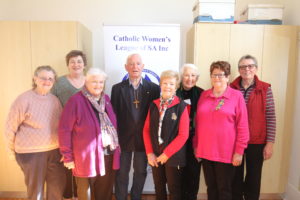
CWL chaplain Fr Brian Angus with members of the State Executive, from left, Maureen Clark, Sue Sheldrick, Philomena Jeffrey, Anne Redden, Leonie Holmes, Anne Marie Clark and Sue Williams.
Other guest speakers at the conference included Megan Welsh from Centacare Catholic Family Services, who outlined the agency’s work in the area of domestic violence, homelessness and youth services and Angela Hart, representing ACRATH (Australian Catholic Religious Against Trafficking in Humans), who spoke of the organisation’s commitment to raising awareness about human trafficking, modern slavery and forced marriage.
National CWL president, Ann Pereira from NSW, also attended and discussed plans for a national forum to address the issue of declining membership and how the League can be relevant for the next generation of Catholic women.
For more information about the Catholic Women’s League South Australia go to www.cwlsa.org/



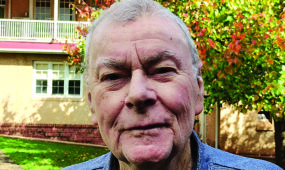
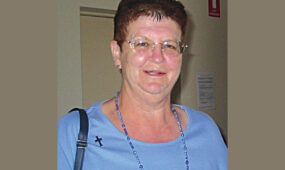
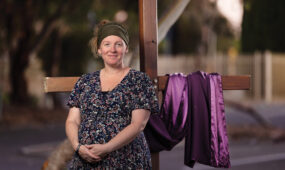
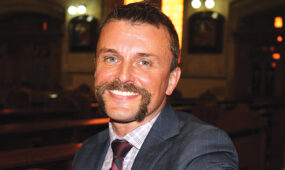

Comments
Show comments Hide comments